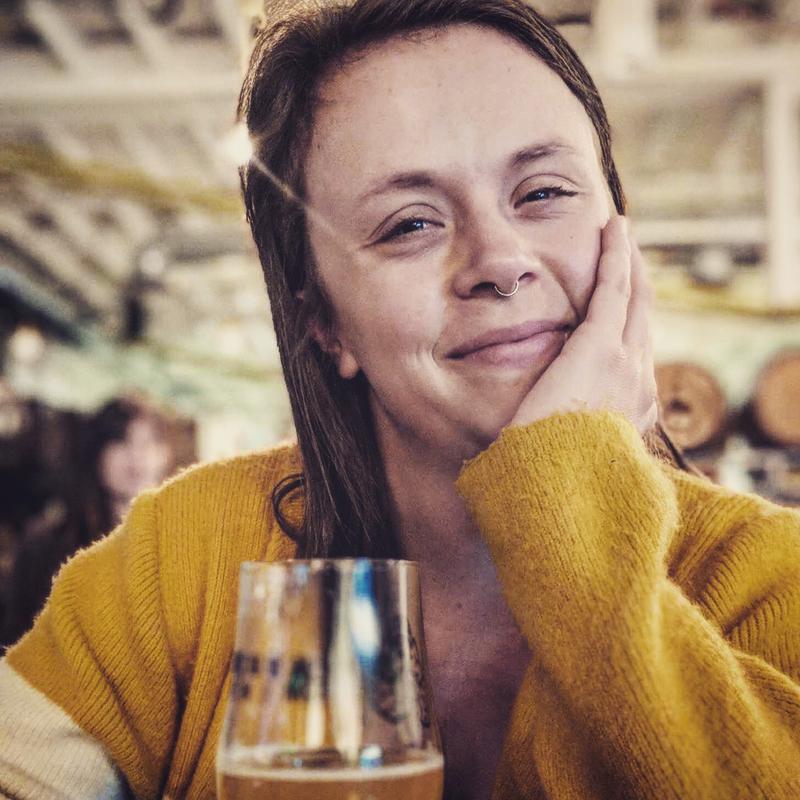
Think about the last craft beer you had and imagine in your mind the person who brewed it. Is he tall or short? Big or small? Hirsute or clean shaven? The answer is very predictable, says Grace Weitz. She works for HopCulture, an online magazine about beer. “Nine times out of ten you would envision the stereotypical image of a man with a beard, a lumberjack kind of shirt, and brewers boots.” Rarely, she says, do people consider the brewer might not be a “he” at all, but rather a “she.”
To change that picture in our heads, Weitz organized the first-ever week-long Beers With(out) Beards Festival in New York last month. The name says it all: about 1,100 people celebrating women working in beer, with a beer tasting, a trivia night, panel discussions, and — oh, yeah, some sampling, too. Weitz believes that it’s crucial to bring together all the women who love beer, work in beer, or want to work in beer, to —um — ferment some sort of change in the industry, and in the public’s perception of it.
Women are natural brewers. They started making beer as far back as 7000 B.C. (It's a form of cooking, after all.) “We started out brewing beer for the community,” says Camille Shoemaker, a brewer from Denver, who helped lead one of the discussions at the festival. “We are doing the same thing today.” She’s 29 years old, and studied her way into brewing at NYU, focusing on gender disparities in the industry and the history of women in brewing. Beer can be serious stuff.
Much later in history, Prohibition helped drive women out of the business, as the type of small brewers women were more likely in charge of weren’t profitable enough to survive. Today, more than 80 years later, only 2 percent of breweries have women as their sole owners or head brewers, according to a study by two Stanford professors. Shoemaker believes that being in the minority, women have to prove themselves more. But they are beginning to lend one another a hand. The Pink Boots Society, a non-profit organization, aims to help women all over the U.S. gain experience in the industry by hosting networking opportunities and offering frequent scholarships. The most recent one was a trip to Germany to learn brewing techniques from the masters of the craft.
New York City just got its own chapter of the Pink Boots Society, lead by Mary Izett, the co-owner of the Fifth Hammer Brewery in Long Island City, Queens. Women meet every month. “It’s also a good way to learn something,” she says. “We talk about draft technology, or off-flavours, for example." Visitors are welcome.
Right now, Camille Shoemaker, the Denver brewer, hates being singled out for her gender. ”I don’t want to be referred to as a ‘female brewer,’” she says. ”I am a brewer, that's it. Men aren‘t referred to as ‘male brewers.’” But some point, of course, after a few more festivals and a whole lot of climbing the ladder, that might change. That’s what Camille Shoemaker hopes.“I hope that in five years we will all just be referred to as brewers, no matter what gender we are.”
